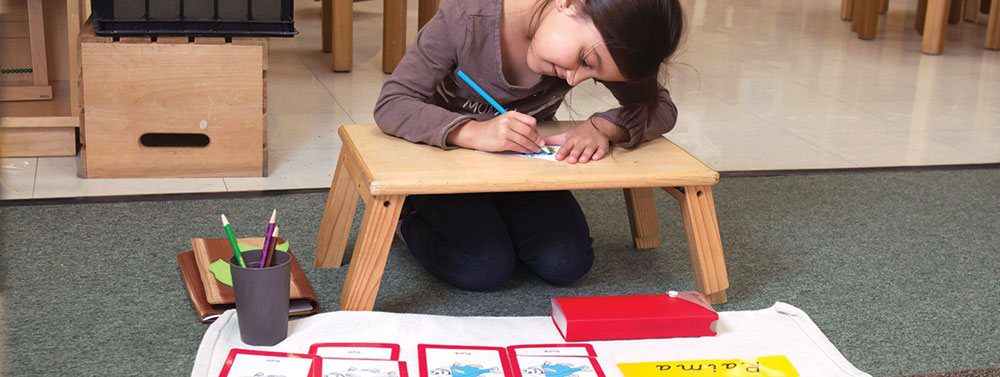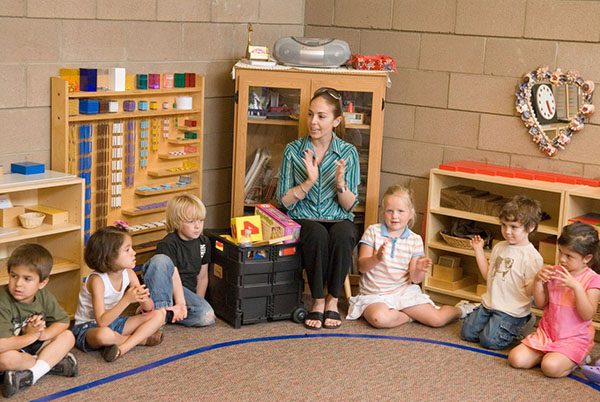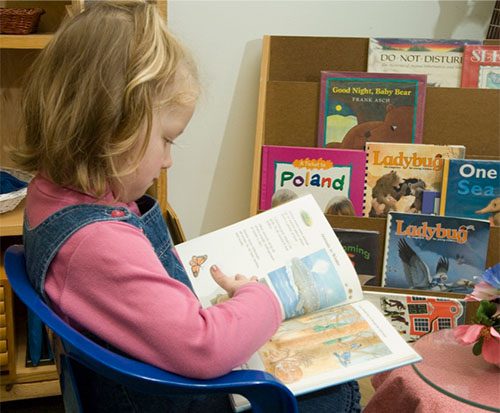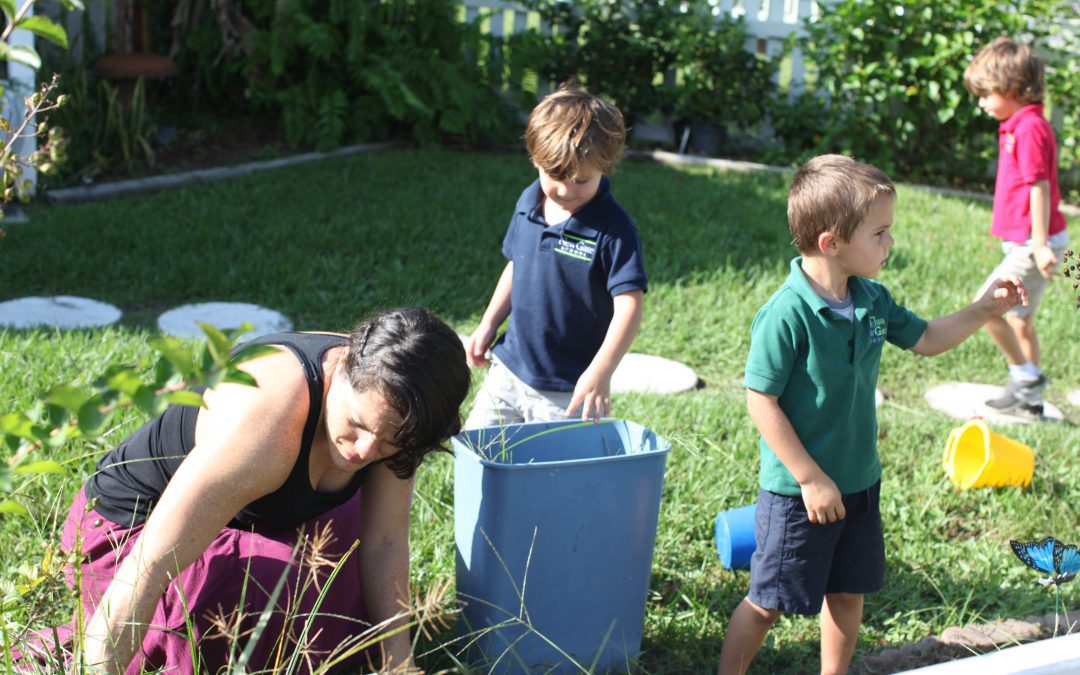To access this page, you will need to log in or become a member.

by Maren Stark Schmidt | Child's Work, Early Adolescence (12-15), Emotional Intelligence (EQ), Later Adolescence (15-18), Lower Elementary (6-9), MFA, Mindfulness, Montessori Education, Montessori Teachers, Upper Elementary (9-12), Young Adults
Tired and agitated, Sara got ready for bed. What had happened to the day? She had woken up fresh that morning, ready to have a productive day. During breakfast, Sara’s assistant had called to alert Sara that she wouldn’t be in to copy the reports for the next day’s meeting. When Sara went to make […]
To continue reading, you will need to choose a subscription plan.

by The Montessori Foundation Staff | Early Adolescence (12-15), Montessori Education, Outdoor Education / Resources, Primary (3-6), School Resources, The International Montessori Council, Upper Elementary (9-12), Year Round Schooling
Download File This is a PDF of a PowerPoint presentation about organizing summer programs.
To continue reading, you will need to choose a subscription plan.

by Tim Seldin | MFA, Montessori Education, Montessori Family Life, Montessori Parenting, Montessori Teachers, Parent Education
FIRST PLANE OF DEVELOPMENT The work cycle is dependent on a three-hour uninterrupted period. It begins with preliminary work of a low order followed by a period of restlessness called false-fatigue. After this comes a period of more strenuous, challenging work which induces a period of rest (state of repose) when completed. There should be […]
To continue reading, you will need to choose a subscription plan.

by The Montessori Foundation Staff | Emotional Intelligence (EQ), Emotionally Healthy Children, Empowerment, MFA, Montessori Teachers
Introduction: Throughout the Montessori world schools are struggling with the issue of balancing the wish to incorporate extra activities and programs into the school day while preserving the uninterrupted three-hour work. Teachers often feel as if they don’t have enough uninterrupted time to allow students to immerse themselves in work of choice, and specialist teachers […]
To continue reading, you will need to choose a subscription plan.

by Tim Seldin Paul Epstein | Children with Exceptionalities, Montessori Education, Montessori Family Life, Montessori Parenting, Montessori Teachers, The Montessori Way
Download the chapter on how Montessori schools attempt to meet the needs of children with exceptional needs and challenges, from the book The Montessori Way by Tim Seldin and Dr. Paul Epstein. Download File
To continue reading, you will need to choose a subscription plan.

by Dr. Maria Montessori | Maria Montessori, MFA, Montessori Education, Montessori Parenting, Montessori Teachers, Parent Education
Far too many schools have transformed the process of learning and discovery, which comes naturally to children at birth, into a stressful and often unpleasant experience. We tend to think about schools from a business perspective. We talk incessantly about high standards, competition, and holding children accountable. Somewhere along the way we forgot that schools […]
To continue reading, you will need to choose a subscription plan.

by Andrew Kutt | Family Resources, MFA, Montessori Family Life, Montessori Parenting, Montessori Teachers
Circle Time (class meetings) and community Meeting (school wide gatherings provide unique opportunities to present lessons and to do activities which build community , reinforce school values, broaden the common parameters of learning, and deepen the children’s spiritual experiences at school. These times of gathering can play a central role in introducing curriculum themes., acknowledging […]
To continue reading, you will need to choose a subscription plan.

by Ann Epstein Ph.D | Brain Development, Communication, Language, Language & Reading, MFA, Montessori Curriculum, Montessori Family Life, Montessori Parenting, Montessori Teachers, Parent Education, Reading
The development of language in early-childhood classrooms is an umbrella for the entire Montessori curriculum. Often teachers and parents consider activities on the shelves of the Language area as the heart of actual language learning. Certainly these activities provide powerful opportunities, but language learning occurs most profoundly in the moment-to-moment life of interactions within the […]
To continue reading, you will need to choose a subscription plan.

by The Montessori Foundation Staff | Children with Exceptionalities, Language & Reading, Montessori Family Life, Montessori Parenting, Montessori Teachers, Parent Education, Reading, Writing
Katya was the youngest of the three sisters. She was about to become seven years old that coming Christmas time. Her birthday was December 26. She was a Christmas present that came a day late, her father used to say. Katya had a pretty face and delicate hands but was crippled with bones that grew […]
To continue reading, you will need to choose a subscription plan.

by The Montessori Foundation Staff | MFA, Montessori Education, Montessori Family Life, Montessori Parenting, Montessori Teachers, Practical Life
Margot Waltuch, who died in 2003, was one of the best known and dearly loved members of the senior leadership of the international Montessori community. She was one of the last remaining Montessorians who actually knew and worked with Maria Montessori. She spent a long, productive life in Montessori education, setting down in her wonderful […]
To continue reading, you will need to choose a subscription plan.

by Tim Seldin | Adolescence, Early Adolescence (12-15), Later Adolescence (15-18), Lower Elementary (6-9), Mathematics, MFA, Montessori Education, Montessori Materials, Montessori Teachers, Primary (3-6), Upper Elementary (9-12)
The Challenge of Mathematics We use mathematics in almost every aspect of our everyday lives. As Dr. Montessori would often point out, much of our civilization is based upon mathematics. Science and technology depends upon mathematical calculations. Computers are totally mathematical devices. Businesses, research, and governmental agencies all rely upon the collection and interpretation of […]
To continue reading, you will need to choose a subscription plan.

by Tim Seldin | Brain Development, Family Resources, Kindergarten, Montessori Education, Montessori Family Life, Montessori Parenting, Montessori Teachers, Parent-Teacher Communication, Parenting on the Same Page, Research
Every year in January, one of us will write an article about the importance of children who are turning five completing the three-year cycle of the Montessori Early Childhood program. We do this because this is a decision that is truly important for any child who has grown up thus far in a Montessori program. […]
To continue reading, you will need to choose a subscription plan.

by The Montessori Foundation Staff | Emotional Intelligence (EQ), MFA, Montessori Education, Montessori Materials, Montessori Parenting, Montessori Teachers, Parent Education, Parent-Teacher Communication, Prepared Environment, Primary (3-6)
It is the week before school starts. I am busy setting up our 3-6 year old classroom, checking for parts of activities, making class lists and acclimating our new assistant. I look at the names of the children and carefully arrange them by age from youngest to oldest as I do each August. I stop, […]
To continue reading, you will need to choose a subscription plan.

by The Montessori Foundation Staff | MFA, Mindfulness, Montessori Education, Montessori Teachers, Peace Education
Thoughts about peace education within our schools by Ann Mason As the new millennium unfolds we have made promises of hope and peace to ourselves and our children. The United Nations has declared a decade of peace and non-violence for children and we as educators aspire to developing a peace culture within our teaching and […]
To continue reading, you will need to choose a subscription plan.

by Tim Seldin | Administrative Team, Lower Elementary (6-9), MFA, Montessori Curriculum, Montessori Teachers, School Leadership, Upper Elementary (9-12)
To continue reading, you will need to choose a subscription plan.
by The Montessori Foundation Staff | Adolescence, Early Adolescence (12-15), Educational Program Coordination, Later Adolescence (15-18), Montessori Education, Montessori Teachers
By Dr. Bonny Olney If you attended public school growing up, you all remember “the film” we watched in fourth grade, boys in one room and girls in another. For us girls it was all about female anatomy and this complicated graph of the menstrual cycle. (I also remember being pulled out and disciplined for […]
To continue reading, you will need to choose a subscription plan.

by The Montessori Foundation Staff | Early Adolescence (12-15), Empowerment, MFA, Montessori Education, Montessori Parenting, Montessori students, Montessori Teachers
by Louise Seabrook Knisley The Montessori School of Anderson, SC has always had a strong emphasis on community service. We know that sending students out into the community to do service work provides unique learning opportunities. Students learn the joys of giving of themselves, the value of volunteerism, a sense of compassion, and a little […]
To continue reading, you will need to choose a subscription plan.

by Tim Seldin | Lower Elementary (6-9), MFA, Montessori Curriculum, Montessori Education, Montessori Family Life, Montessori Parenting, Montessori Teachers, Parent Education, Primary (3-6), Upper Elementary (9-12)
The Barrie School Curriculum Guide: Age 3 — 12 A Philosophy Of Curriculum by Tim Seldin, Headmaster, 1971-93 The Barrie School is designed to prepare children both for university and for life. There are three key ideas that are central to our mission as a school: It is not the adult who shapes the […]
To continue reading, you will need to choose a subscription plan.

















